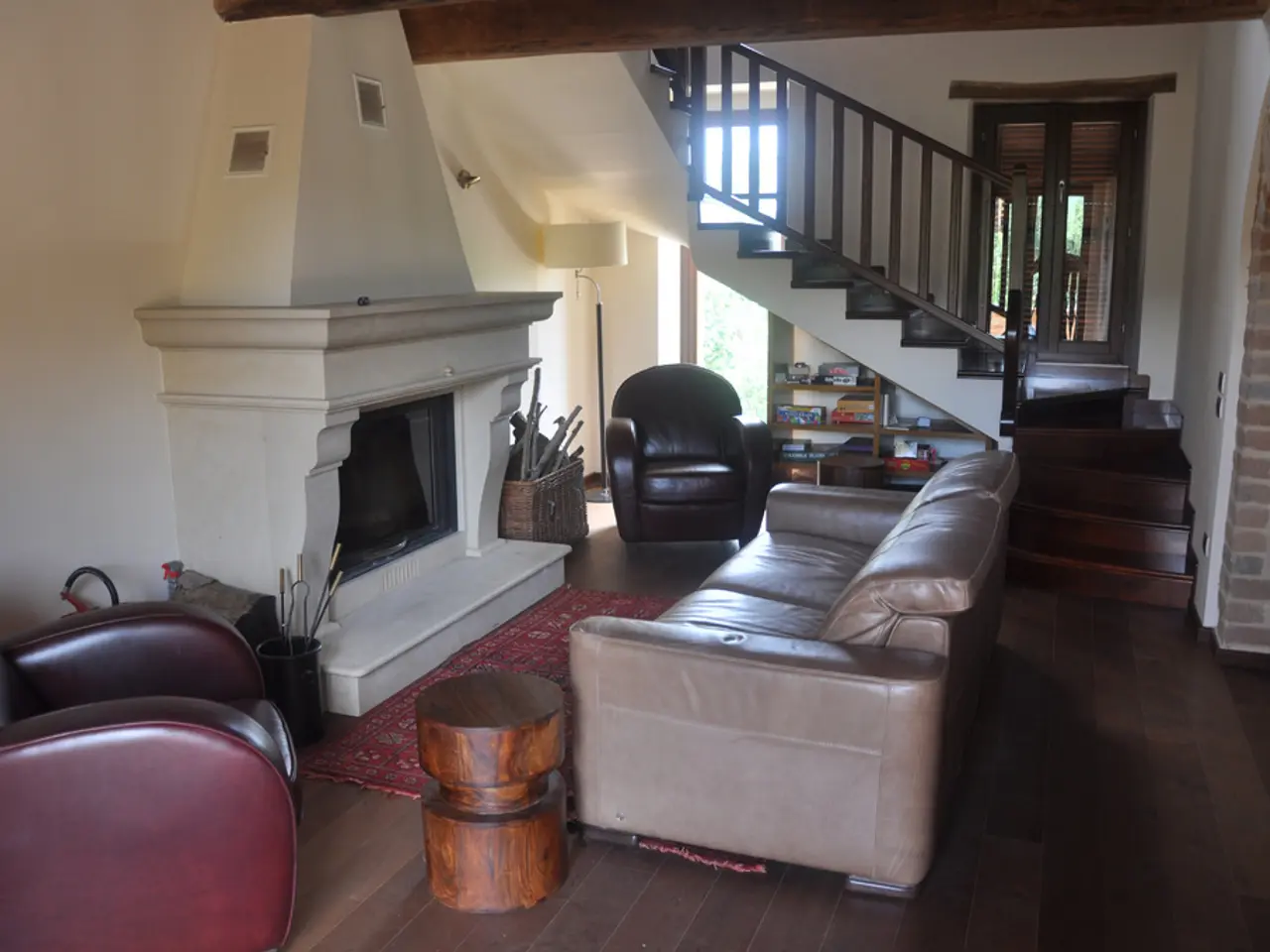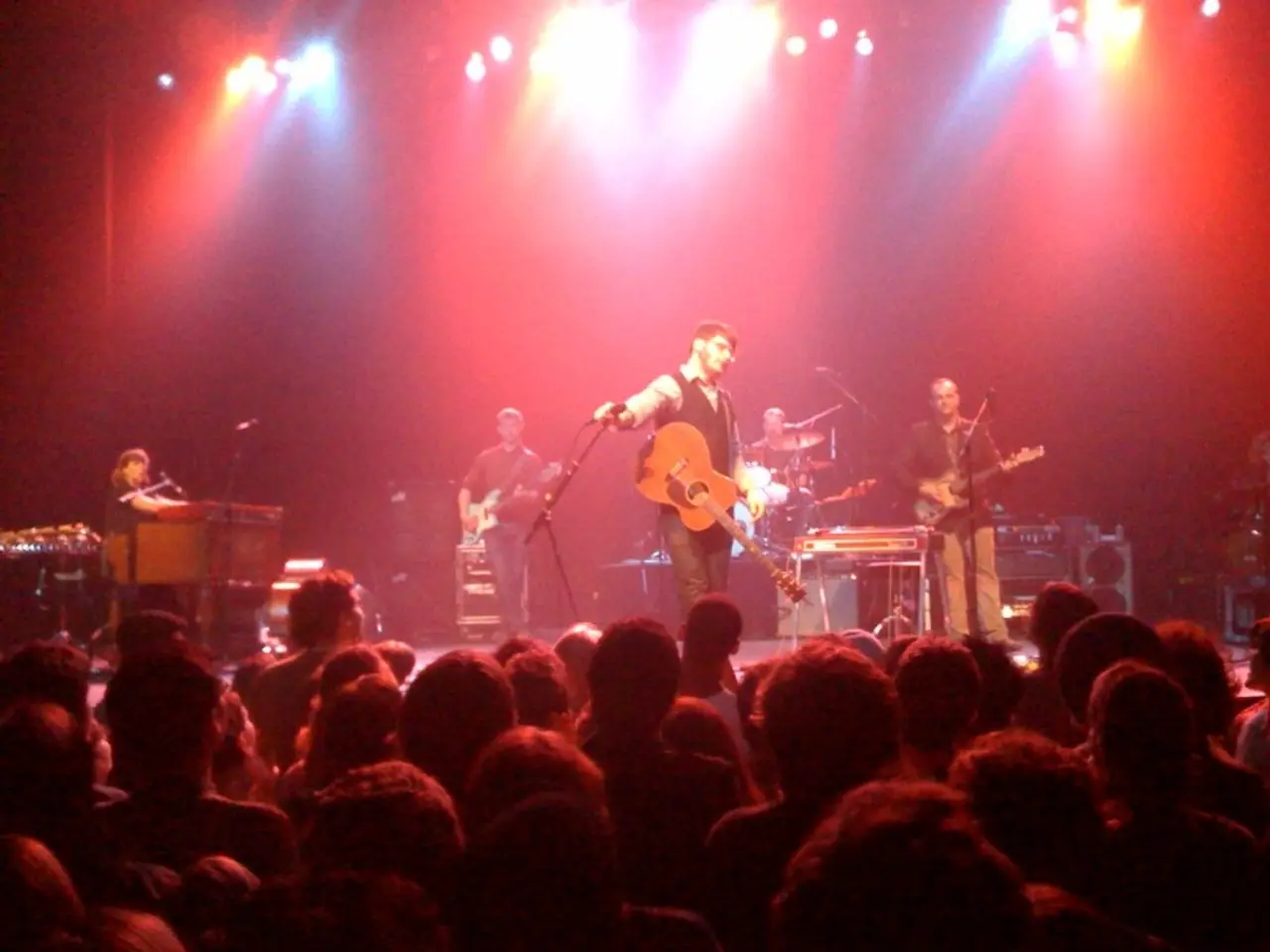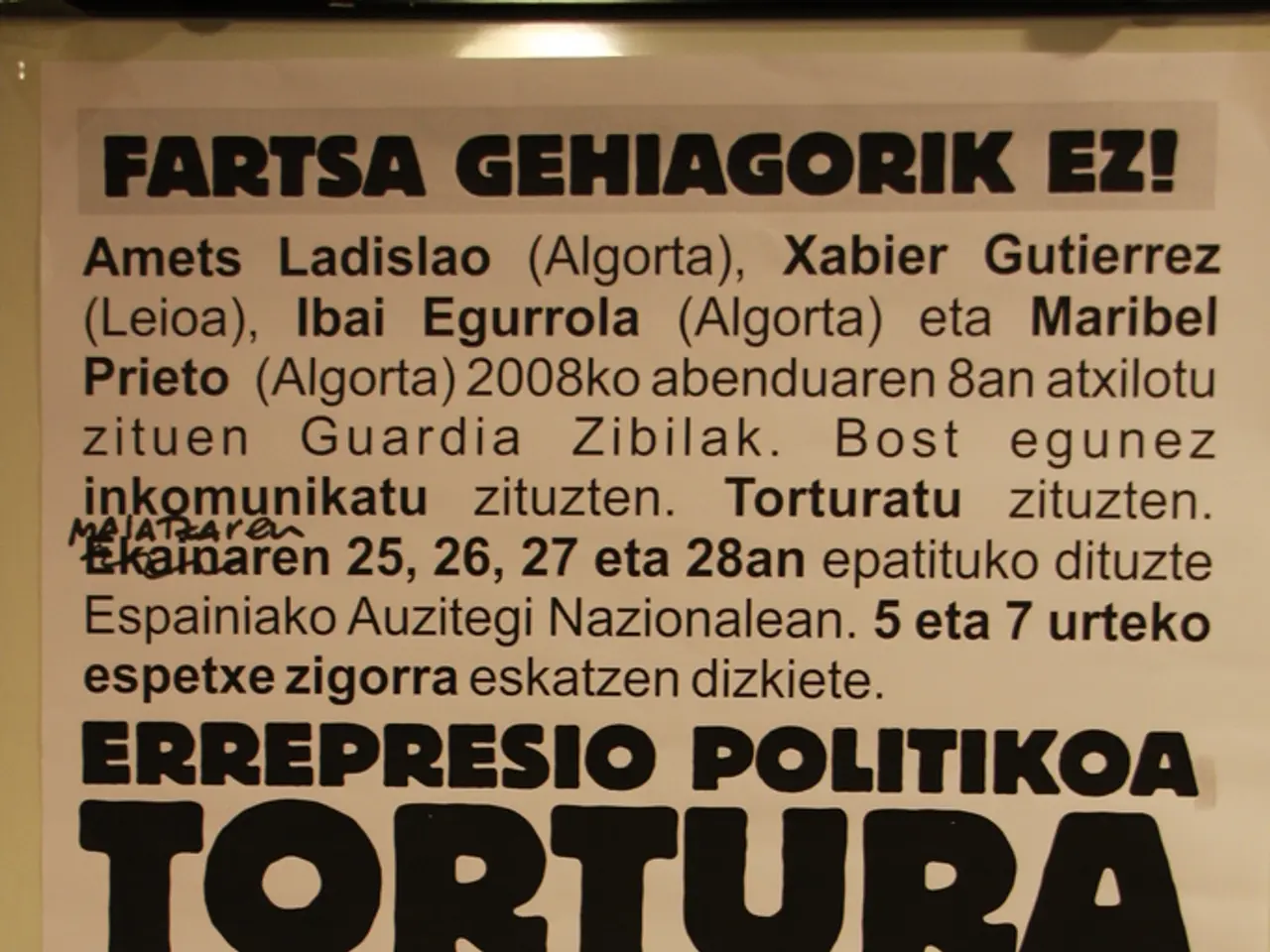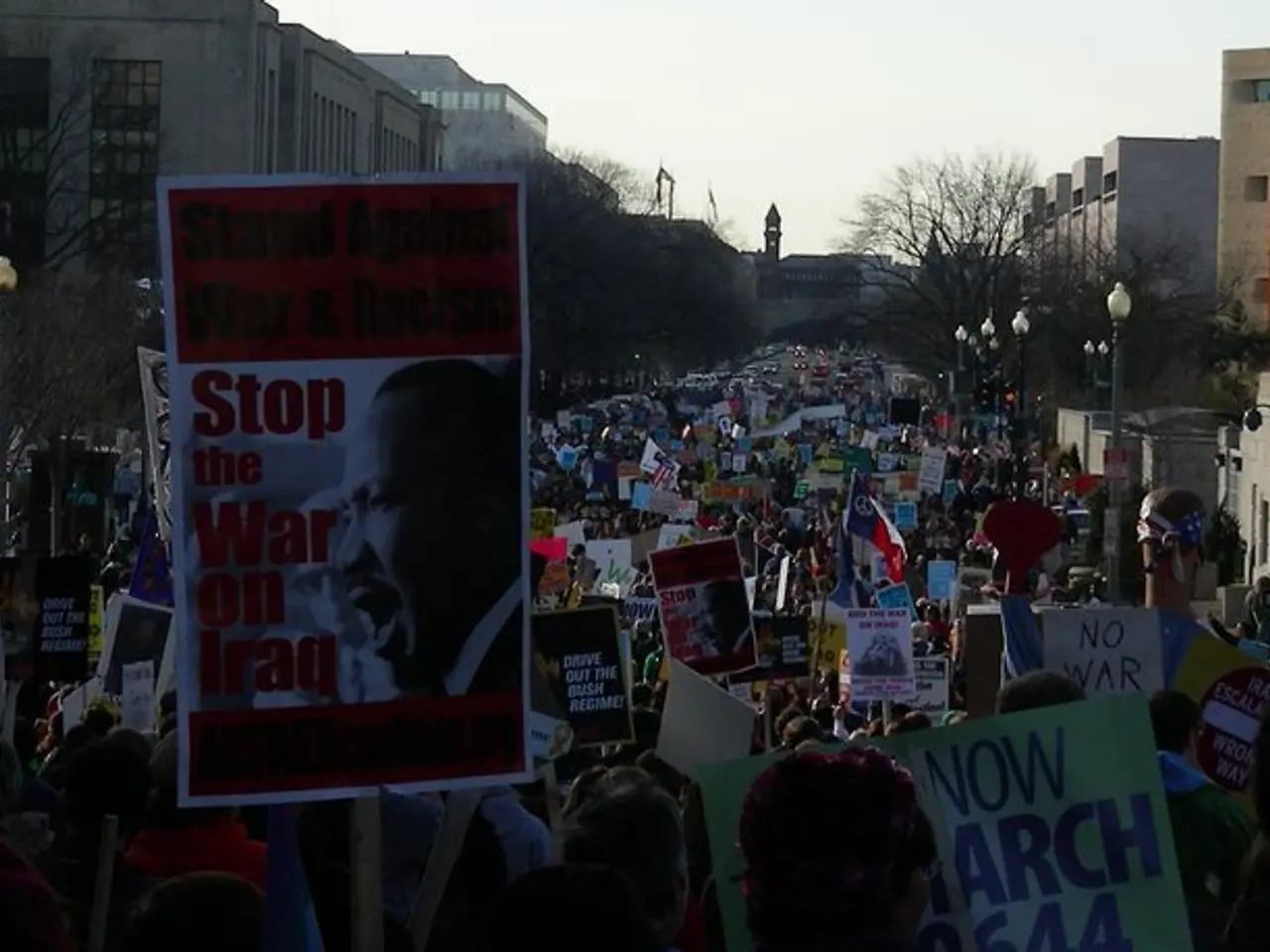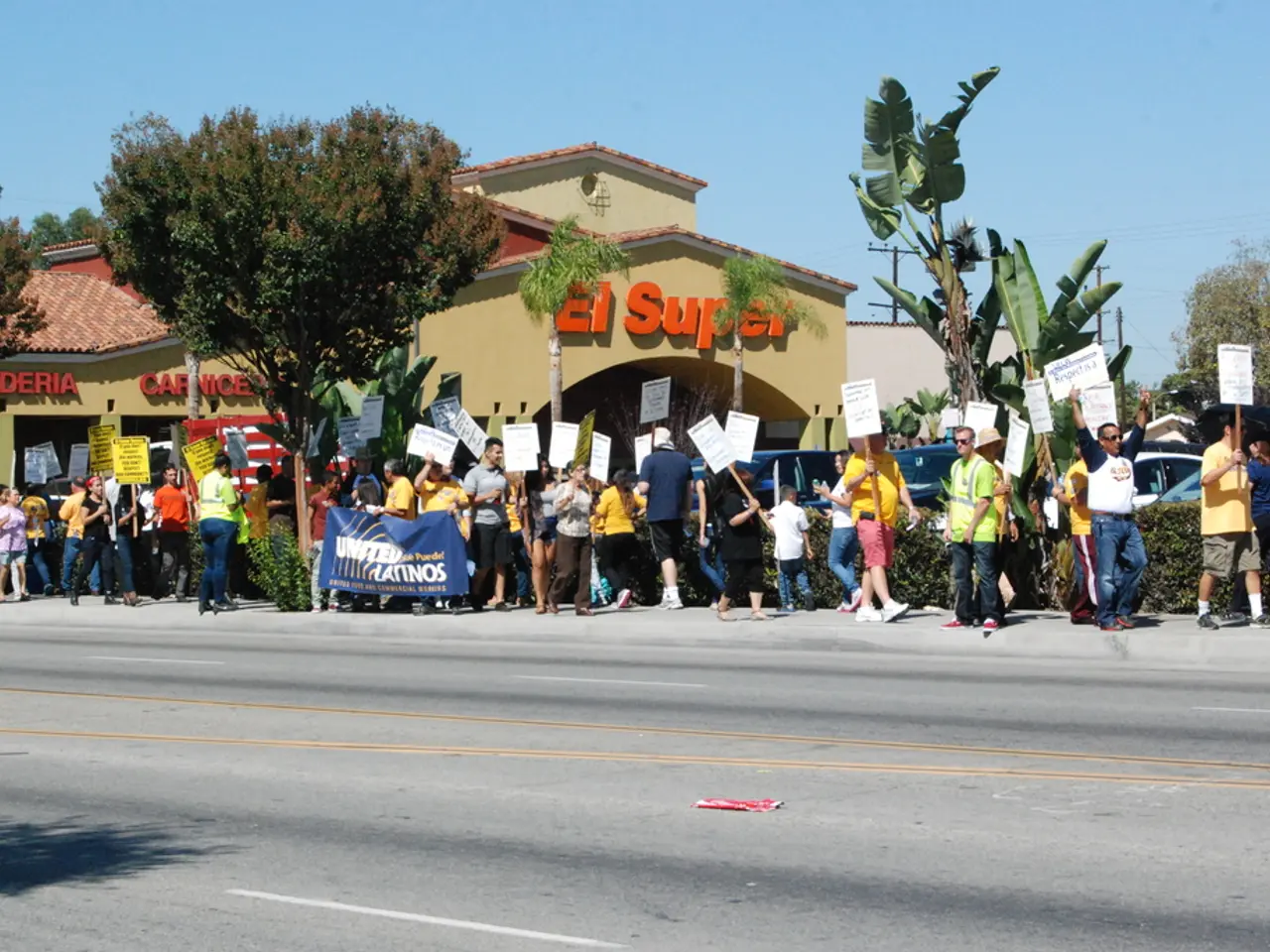Jeffrey Epstein's residence compared by Woody Allen to one infamously eerie location, reports suggest
Woody Allen penned a letter to Jeffrey Epstein for his 63rd birthday in 2016, jokingly comparing Epstein's Manhattan townhouse to "Castle Dracula." This comparison, reminiscent of the 1931 vampire film starring Bela Lugosi, was made in light of the gothic, eerie atmosphere of Epstein's residence and the presence of young women serving, akin to the vampire brides in the movie Dracula.
The letter, which has since been the subject of much controversy, offers a fascinating insight into the social circles surrounding Epstein before his 2019 arrest and death. Allen and his wife Soon-Yi Previn were among the guests who frequented Epstein's dinner parties, which were always interesting with a wide variety of eminent guests, including politicians, scientists, journalists, performers, and royalty.
Allen's metaphor, though delivered in a tone of banter, carries an ominous undertone in retrospect, emphasizing the unsettling and predatory nature of Epstein's home and parties. Despite the revelations about Epstein's criminal activities, Allen has repeatedly denied the accusation that he sexually abused his then-7-year-old daughter Dylan Farrow in the 1990s.
The letter's significance lies in its revealing glimpse into the social circles around Epstein. It humanizes the strange allure of Epstein's gatherings to influential people, showing how Epstein cultivated an image of host to many high-profile and diverse individuals.
In the letter, Allen wrote that the meals at Epstein's house were initially meagre but improved due to Previn's "badgering." Later dinners at Epstein's house included local Chinese takeout. The gatherings were well-served, with flowers placed in the middle of the table, and the food was sumptuous, Allen noted.
The letter has been the subject of much debate, with President Donald Trump referring to it as "fake" and later suing the Wall Street Journal over the story. The Wall Street Journal's story on the Trump letter arrived less than a month after a report by The New York Times. The president has been dealing with backlash to his administration's handling of the Epstein files.
Allen's letter references the 1931 classic film Dracula, where the three vampire sisters appear with the title character. The New York Times likened the letter to scenes in Dracula's castle. Allen has never been charged over the accusation, and Epstein's crimes were not yet public knowledge at the time the letter was written.
[1] The New York Times [2] The Guardian [3] Vanity Fair [4] The Hollywood Reporter [5] CNN
- Intriguingly, the comparison Woody Allen made in his controversial letter to Jeffrey Epstein, drawing parallels between Epstein's Manhattan townhouse and "Castle Dracula," can be seen as a reflection of Epstein's residence being a hub of pop-culture allure, attracting celebrities and high-profile individuals alike, much like the gothic mansion in the 1931 Dracula film.
- The presence of young women serving at Epstein's dinner parties, alluded to in Allen's letter, serve as a stark reminder of the entanglement of entertainment industry personalities with pop-culture figures like Epstein, a relationship that was more complex than initially perceived before the shocking revelations of his criminal activities came to light.
